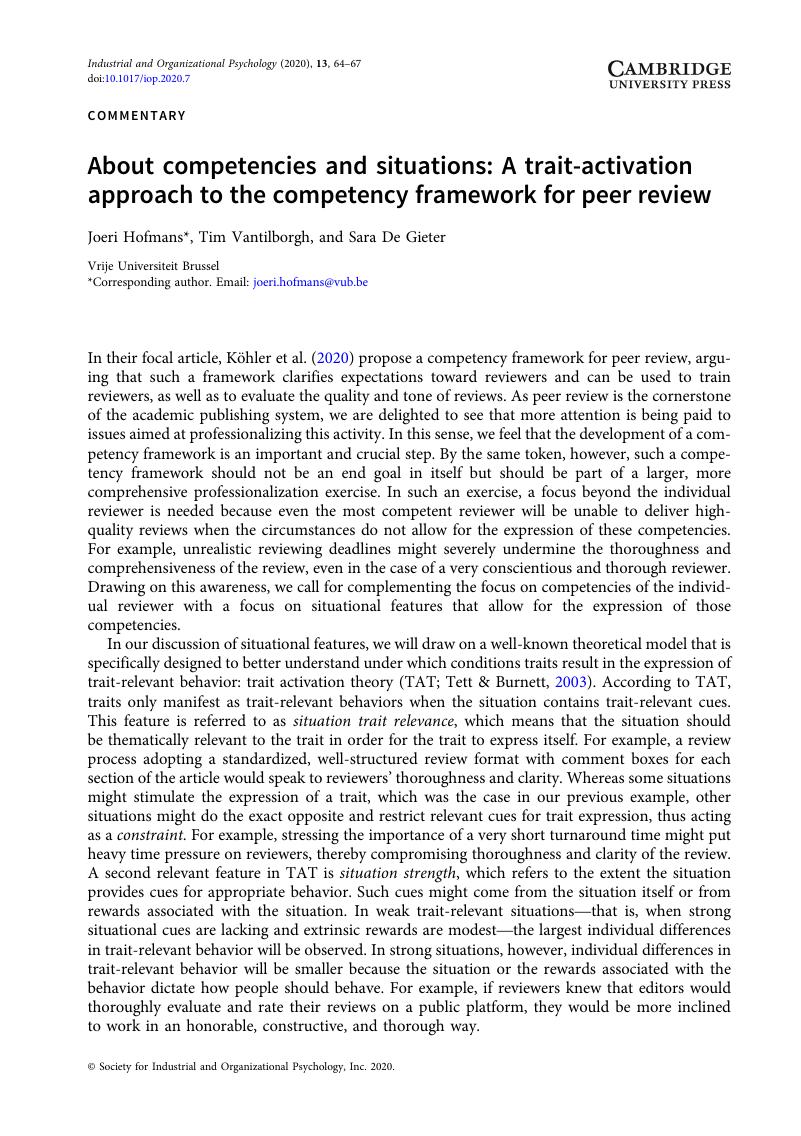No CrossRef data available.
Article contents
About competencies and situations: A trait-activation approach to the competency framework for peer review
Published online by Cambridge University Press: 01 May 2020
Abstract
An abstract is not available for this content so a preview has been provided. Please use the Get access link above for information on how to access this content.

- Type
- Commentaries
- Information
- Copyright
- © Society for Industrial and Organizational Psychology, Inc. 2020
References
Köhler, T., González‐Morales, M. G., Banks, G. C., O’Boyle, E. H., Allen, J. A., Sinha, R., … Gulick, L. M. V. (2020). Supporting robust, rigorous, and reliable reviewing as the cornerstone of our profession: Introducing a competency framework for peer review. Industrial and Organizational Psychology: Perspectives on Science and Practice, 13(1), 1–27.CrossRefGoogle Scholar
Kruglanski, A. W., & Freund, T. (1983). The freezing and unfreezing of lay-inferences: Effects on impressional primacy, ethnic stereotyping, and numerical anchoring. Journal of Experimental Social Psychology, 19, 448–468.CrossRefGoogle Scholar
Tett, R. P., & Burnett, D. D. (2003). A personality trait‐based interactionist model of job performance. Journal of Applied Psychology, 88, 500–517.CrossRefGoogle ScholarPubMed


